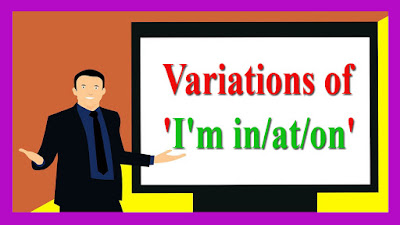I have + (noun) - English Speaking Basics
By using the words “I” you are telling someone about something you have or have acquired.
 |
| I have + (noun) - English Speaking Basics |
Read Also: English Speaking Basics - Part: I
Here are some examples:
"I have a cat."
"I have a nice car."
"I have a house."
"I have a computer."
"I have a headache."
You may hear the words "cannot" and "will not" used along with "I." By adding them, you can express what you will not tolerate or allow.
Here are some examples:
"I cannot have this behavior in my house."
"I cannot have you over tonight."
"I won't have anything to do with it."
"I won't have it any other way."
Questions and Answers
Have you ever visited Canada?
Yes, I have. (short answer)
Yes, I have visited Canada several times. (full answer)
Have you ever visited a dating website?
Sorry, I haven't.
Sorry, I have never visited a dating website. (full answer)
Yes, I have. (short answer)
Yes, I have visited a dating website. (full answer)
Have you ever met a famous person?
Yes, I have.
Yes, I have met a famous person.
Yes, I have met many famous figures.
Yes, I have met Lady Gaga.
Latest Spoken English WhatsApp Group Links List 2021
English Speaking WhatsApp group links
Learning Spoken English Whatsapp Groups Link In 2021
English Literature WhatsApp groups
Spoken English WhatsApp Group Links 2021
Join English Practice WhatsApp Group Links














%20-%20English%20Speaking%20Basics.jpg)



